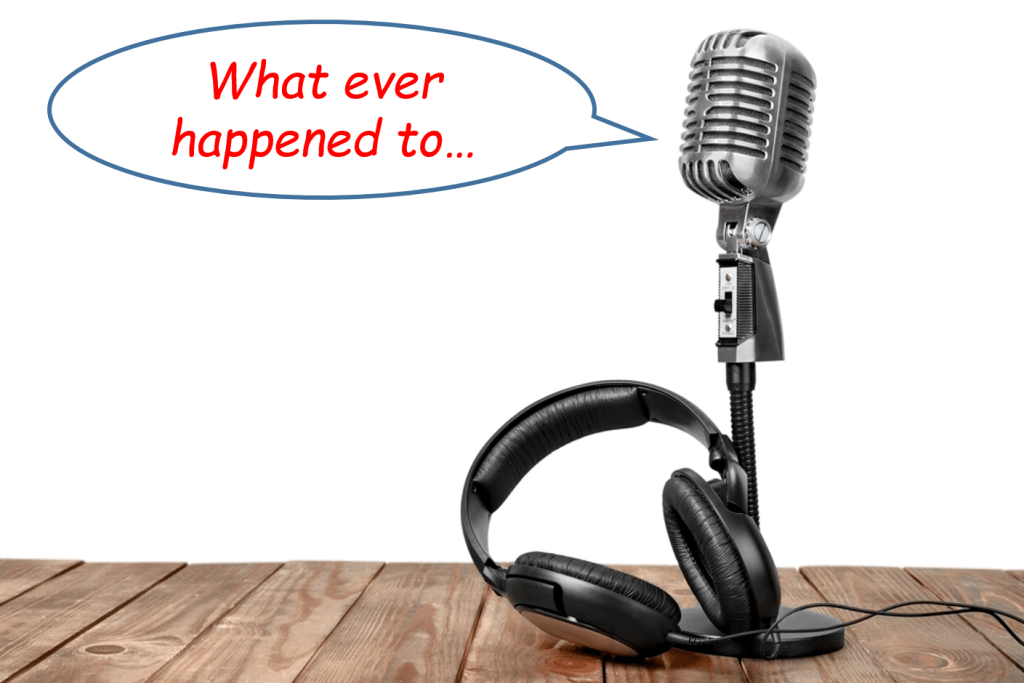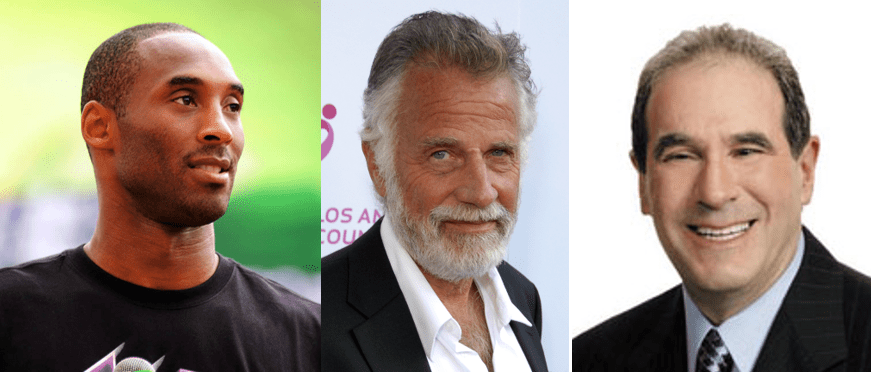 You see it happen in sports all the time. When one of the greats finally decides to hang it up, the best ways to celebrate a memorable career is with the “victory lap.” Kobe Bryant of the Lakers is in the stretch of his swan song run this season, visiting all of the opposing arenas, and soaking up well-deserved accolades, plaques, and standing ovations. He’s also filling up arenas as the fans pour out to show their respect for a future NBA Hall of Famer.
You see it happen in sports all the time. When one of the greats finally decides to hang it up, the best ways to celebrate a memorable career is with the “victory lap.” Kobe Bryant of the Lakers is in the stretch of his swan song run this season, visiting all of the opposing arenas, and soaking up well-deserved accolades, plaques, and standing ovations. He’s also filling up arenas as the fans pour out to show their respect for a future NBA Hall of Famer.
As it should be. When a sports or an entertainment brand says good-bye to one of its all-stars, why not get some love (and maybe some ratings) out of a great career and a great run?
This has even become the case in ad campaigns. Dos Equis is now in the process of saying “Adios, amigo” to its erudite spokesman of nine years, “The Most Interesting Man In The World.” Below is one of a series of commercials celebrating the end of this great Dos Equis series, showing off the diversity of his fans across the globe.
https://www.youtube.com/watch?v=U5EAQpHH6_Q&ebc=ANyPxKpKxJdgwAwKBE9v0Aao1gXog-0_T4C644URBlSIyNYttwIHqN5BZOipVJWGnpmZM4DfJAvjQu3Xm5qoJ37S0xdyYv0bZQ
The backstory here is told by the beer’s marketing whiz, Andrew Katz, who admits this well-known campaign is out of gas, and does not resonate with younger drinkers. As he told USA Today, “Culture has changed very dramatically. Our Millennial drinker has changed quite dramatically, and the competition has only exploded with the advent of craft (beer). We just want to make sure that the (Most Interesting Man) story evolves.”
That’s a nice way of saying the campaign is aging, the youth market is moving on, and Dos Equis has to consider new demographics and changing tastes. Just like in radio.
(Interesting, isn’t it, that a 74 year-old cantankerous Senator from Vermont seems to have no trouble winning over millions of jaded twentysomethings, the same consumers that Dos Equis is chasing.)
That’s a big part of what Cumulus is saying about KGO Radio, the once-dominant brand in the Bay Area that has become a fly speck in the San Francisco rating book. KGO was one of the original ABC Radio O&Os (owned and operated station). I grew up in radio in ABC, and General Manager Mickey Luckoff ran the place like it was the most important radio station on the planet. In those days, companies could only own 7 AM and 7 FM stations. There were no “toss-ins,” and dog stations weren’t tolerated. They all mattered. KGO might have had the longest streak of #1 rating books back in the day, dominating the news and talk scene, and lording over every music station in its metro. But more than that, KGO was a market institution, the voice of the Bay Area.
Last week, parent company Cumulus announced sweeping changes, mass firings, and a new direction that hopes to recapture some of the brand’s magic. And with these moves, a lot of brand tradition goes by the wayside. There will be no parade for KGO marching down Market Street.
Dos Equis, however, is taking that victory lap with actor Jonathan Goldsmith who is now 77 years-old. The brand, the agency, and actor obviously came together to orchestrate a farewell campaign that reaps benefits for all parties, while ending “The Most Interesting Man” on a high note.
Goldsmith explained to USA Today that his character “made millions of people smile over these many years. There is a real connection with the fun and authenticity of the character, which I portray with the same job and passion that is part of my own life.”
No doubt, Kobe probably shares similar feelings and emotions has he now take the court for a finite number of appearances in an NBA uniform. He has made peace with himself, the Lakers, opposing players, and of course, the fans.
And you’d think that Ronn Owens and other KGO stars might feel the same way. After years behind the mic, a chance to say acknowledge fans at events all over the metro isn’t any more farfetched than what both the NBA and a global beer brand is doing with their big talent. But it rarely happens in radio.

It begs the question as to why radio has so much trouble saying good-bye to its venerable personalities (and even its brands), more often choosing to “blow up the format” or “disappear DJs,” rather then giving both well-deserved send-offs.
In radio, it doesn’t usually end up this way. For some reason, the victory lap is an anomaly. Instead, it’s more typically an abrupt move where adored talent are often put out to pasture with a string of “no comments.” More often than not, their whereabouts are unknown, left for the audience to figure it out on their own.
 That’s the story at KGO and many other stations that have become shadows of their former selves or simply have been forced to changed formats. Not only is there no closure for a confused, perplexed, and often angry audience, but there are significant revenue losses that can occur as well.
That’s the story at KGO and many other stations that have become shadows of their former selves or simply have been forced to changed formats. Not only is there no closure for a confused, perplexed, and often angry audience, but there are significant revenue losses that can occur as well.
Now, of course, every circumstance is different. There are times when the situation has festered, making it impossible to cleanly send off talent with a flourish. And unless you’re in the station or corporate conference room, you don’t know the facts, the details, and the circumstances that go into making these tough decisions. I’m in those rooms a lot, and fully realize the view can be very different when you’re on the inside of a sticky situation.
But the goal would obviously be for a reasonably happy ending. And in order for a victory lap to take place, it’s essential that a smart strategy from management has been devised, agreed on by all parties, and executed flawlessly.
Howard Stern’s very long victory lap at WXRK (and his entire network) is a case in point. The decision was made to allow the show to work out its contract. Unfortunately for his broadcast stations, Howard frequently used that opportunity to promote his new Sirius home for months, while lambasting radio, CBS, and his bosses. Yes, money was made but it came at a cost.
It takes planning, research, strategy – and class – to pull of these transitions in a way that can work for all concerned parties. In business, the disappearing act is an art form. Only the very best managers and the companies that hire them can deftly execute these complicated maneuvers.
Too often, the result is much like what has happened with KGO (and KFOG). In the short run, talent and the brand may suffer, but the biggest losers in these dramas are almost always the listeners, the ones who supported the station and its advertisers often for decades.
And that’s the truly sad part.
There’s never a victory lap for them.
Postscript: After this post went live, KGO announced that Ronn Owens had been rehired (or unfired) and will remain at KGO Radio with an all new lineup. The station says it was a “listener outcry” that changed their thinking. So it was a very short “victory lap” for Owens, but not for the other KGO staffers who were let go last week. We wish Owens well, congratulate the audience for a job well done, and hope that other stations are wise and prescient enough in the future to rethink the way these transitions are conceived and handled. Loyal audiences deserve their opportunity to celebrate, grieve, and express their emotions.
- The Digital Twins Of Audience Research - February 5, 2025
- How Radio Can Create Its Own “TUDUMS” - February 4, 2025
- What’s Your Radio Station’s “TUDUM?” - February 3, 2025




Yup…been there.
Sadly, so have a lot of jocks, PDs, and GMs. Not to mention millions of listeners. Thanks, Pam.
It’s sad how absolutely pathetic “management” by Cumulus has destroyed these once legendary and extremely profitable radio stations.
The FCC should deny all their license renewals for failure to serve their communities.
You could make the case that the station(s) Citadel handed them were already damaged. In either case, it is a shame to see once-great radio stations in this kind of shape. Thanks, Zeb.
I was “let go” from a station and they actually let me finish out the week on the air. I didn’t do anything unprofessional. In fact, I stayed on the air past my shift to announce severe weather alerts during Delilah. I just couldn’t walk away knowing people were counting on us for storm info.
Peter, thanks for chiming in. It does happen, but has become more of a rarity. Kudos to you and your station management.
Fred – Beautifully and gracefully put.. a legend goes down for whatever and it’s with a whimper, not a bang… Recall when KMET became The Wave and we hosted the ‘MET crew on KLSX? An opportunity here for some station???…
Tom, the KMET example is a great one. Metromedia (who owned them) had a great chance for a memorable send-off. And you’re right – there’s a chance for a station “across the street” to make a statement while making fans happy. Thanks for the timely reminder.
As a listener I never liked waking up one day and my favorite DJ was gone. It felt very cowardly to just act like they were never there. There were part of our lives, we just wanted to know where they went.
Michael, I dislike the word “closure,” but when it comes to the audience and their relationship with personalities and stations, you’ve described that desolate feeling very well. Thanks for taking the time to chime in.
You bring up a great point. Some great stations and personalities have run their course, but closure with them would only help cement people’s connection to radio. Does “stunting” really work? Wouldn’t a great sendoff for KFOG (that has been doing AAA for roughly 30 years) do more to endear people and soften the blow than an abrupt and meaningless segue serenade?
When my last radio job was ending, the new GM told me, IF, you have a really good relationship with programming and they’re going to change the format, they’ll call the GM night before and tell you. If not, you’ll find our in the morning when the listeners do.
I won’t comment about the GM part, but IMO listeners should be given more deference, especially with long running formats and personalities.
It’s a matter of respecting the audience, Bob, which is something that radio has struggled with forever. These days, as consumers expect more authenticity and transparency, radio is still “disappearing” formats and DJs. It is very much out of step with where the audience has moved. Thanks for taking the time to comment.
The corporate types have been silent assassins many times in the Cincinnati market, but one example comes to mind of a (seemingly) happy ending. When Gary Burbank left the air about 10 years ago, he had a fine sendoff for his final day.
Rick, thanks for the comment. There are times when all the planets line up, and talent gets to say good-bye in a respectful and meaningful way. Sadly, these moments are too rare.
Ditto for Jim Scott. Mike McConnell was ushered out when he announced he was leaving for WGN, but was welcomed back a few years later.
Rare, but it happens. Thanks, Brad.
The only way it makes sense for an outgoing “personality” to get a big sendoff is if it can be done as a tangible promotion to the STATION. There has always been a fair amount of talent in the radio business. However “they” (the radio “personalities”) need to keep in perspective what this really is – it is not about them, it is about maintaining some sort of a half-baked ratings trail that can be used to sensibly peddle the air time.
There might be cases where it makes sense to provide a great promotional”sendoff so some dummy who has worked 20 years in somebody’s 1000 watt rural daytimer, but I’ll bet not. In most cases the inflated self importance of the lowlife is not even close to their actual revenue generating potential. This is the real and underlying reason for radio personality “churn”.
I would beg to differ with you, having moderated more than 1,000 focus groups over the years. Personalities mean more to listeners than many managers and owners think. Obviously, upper management needs to have a true sense of the value of personalities and DJs to their brands, which is part of the calculus involved in re-signing talent or letting them go. If the audience has a sense of loyalty to talent and management has a decent relationship with talent, these happy sendoffs can work for all parties. Listeners don’t forget acrimonious partings. Planning, class, and legal documentation are all necessary ingredients.
JVJJ said “There might be cases where it makes sense to provide a great promotional” sendoff so some dummy who has worked 20 years in somebody’s 1000 watt rural daytimer, but I’ll bet not. In most cases the inflated self importance of the lowlife is not even close to their actual revenue generating potential.” I’m one of those “lowlife’s”. I’ve been doing the morning show on the same rural station for nearly 15 years, the first 5 we were STILL a (10,000 watt) daytimer on AM. We’ve since moved to FM and broadcast 24/7, just like big-city radio stations with that new-fangled electricity and indoor plumbing for the jocks. (Thanks for the respect JVJJ) How sad that in a world of syndication, the few guys who are willing to work the small markets for the lower pay are considered “lowlife’s” instead of what they really are – the voice of their community. During severe weather or an emergency, they are who people turn to when they don’t know where else to turn. Yes, they’re big fish in a small town. That’s the trade off for not having actual fame and dump-trucks full of money. On the other-hand, they ARE known in their community. The audience is able to relate to them on a personal level completely unheard of in larger markets or on a national scale. They’re your friends, your neighbors, the good guy who coaches ball in his spare time. They lead food-drives and are first in line to give blood or a few bucks that they can’t really afford to part with, because it’s the right thing to do. Yes, lowlife’s for sure. But those lowlife’s have a connection with their audience that doesn’t and in fact can’t exist elsewhere. But then, that’s just an over inflated sense of self importance from one of those dummy’s.
I was hoping an engaged, smart, connected small town lowlife would step up and respond. Personalities like you make a difference in people’s lives. Thanks for taking the time chime in with a passionate response.
Having been on both sides there were some talent who were loose cannons and didn’t deserve the chance to take the lap..in my case .I had finished my morning show on a Tuesday the GM came in my office and told me they were going with a syndicated show and my position had been cut..the show started the next day…talk about a shock to the audience
It starts with having a workable relationship between talent and management. Oftentimes the station may be justified in worried about what talent will say on that fateful last day on the air. Some managers have connected severance terms to what actually happens on the final show. Assuming the relationship hasn’t deteriorated, there is often a way to make this work for that talent, management, and oh yeah, the audience walks away as happy as possible.
I understand why companies are reluctant to let the talent say anything. But to me, It feels disrespectful to the listener to disappear without a word. You are expected to “share” everything. If you are good at your job your audience feels as if they know you, and then…… you don’t even say goodbye or thank you. Luckily social media has bridged that gap to some extent.
Mitzi, thanks for the comment. You’d hope that talent and management have enough of an understanding that these things can be worked out, but it’s not always that way.
As you note, talent has found a way to stay in touch with the fan base via social. And that’s a whole other topic!